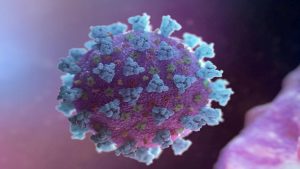As the global pandemic continues to impact healthcare systems and the public, tracking the spread and impact of COVID-19 has become critical. Tech companies and researchers are teaming up to address this need, which has been facilitated by capital from giants like Google.
Thirty-one organizations were promised a collective $8.5 million from Google recently to support their efforts in developing artificial intelligence (AI) and data analytics platforms that will help to develop a greater understanding of how COVID-19 spreads. A portion of these projects will also conduct research on the impact the virus has had on healthcare workers, and how it affects vulnerable and underserved communities.
Earlier this year, Google announced its commitment of $100 million towards COVID-19 research, solutions, and relief. The $8.5 million slated towards AI projects is part of that original lump sum and will be used primarily to help forecast disease spread.
“Understanding the spread of COVID-19 is critical to informing public health decisions and lessening its impact on communities,” said Mollie Javerbaum, program manager of Google.org. “We’re supporting the development of data platforms to help model disease and projects that explore the use of diverse public datasets to more accurately predict the spread of the virus.”
Many of the organizations receiving funding are academic institutions, though several nonprofits and software developers made the list as well. Carnegie Mellon University is working on an interactive, real-time map of COVID-19 data, while Keio University tackles the reliability of virus spread models. Many projects investigate the health disparities in minority populations, such as a joint venture between Florida A&M and Shaw University that looks at how the coronavirus impacts communities of color in Florida and North Carolina. Similarly, UNC and Vanderbilt University are working together to investigate virus susceptibility and outcomes within Hispanic and Latinx communities.
The grant will also explore ways to help healthcare workers navigate this drastically new environment in the safest, most effective manner possible. For instance, University of California Berkeley and Gladstone Institutes are just a few of the institutions focusing on alleviating healthcare workers’ burdens by creating at-home diagnostic tests with accompanying cell-phone compatible software. Aside from those who have battled COVID-19 first-hand, healthcare workers are likely the ones who have been affected the most by the global health crisis. Google hopes to assist in providing relief for them, and for the billions of people around the world who have been affected directly or indirectly by the pandemic.























